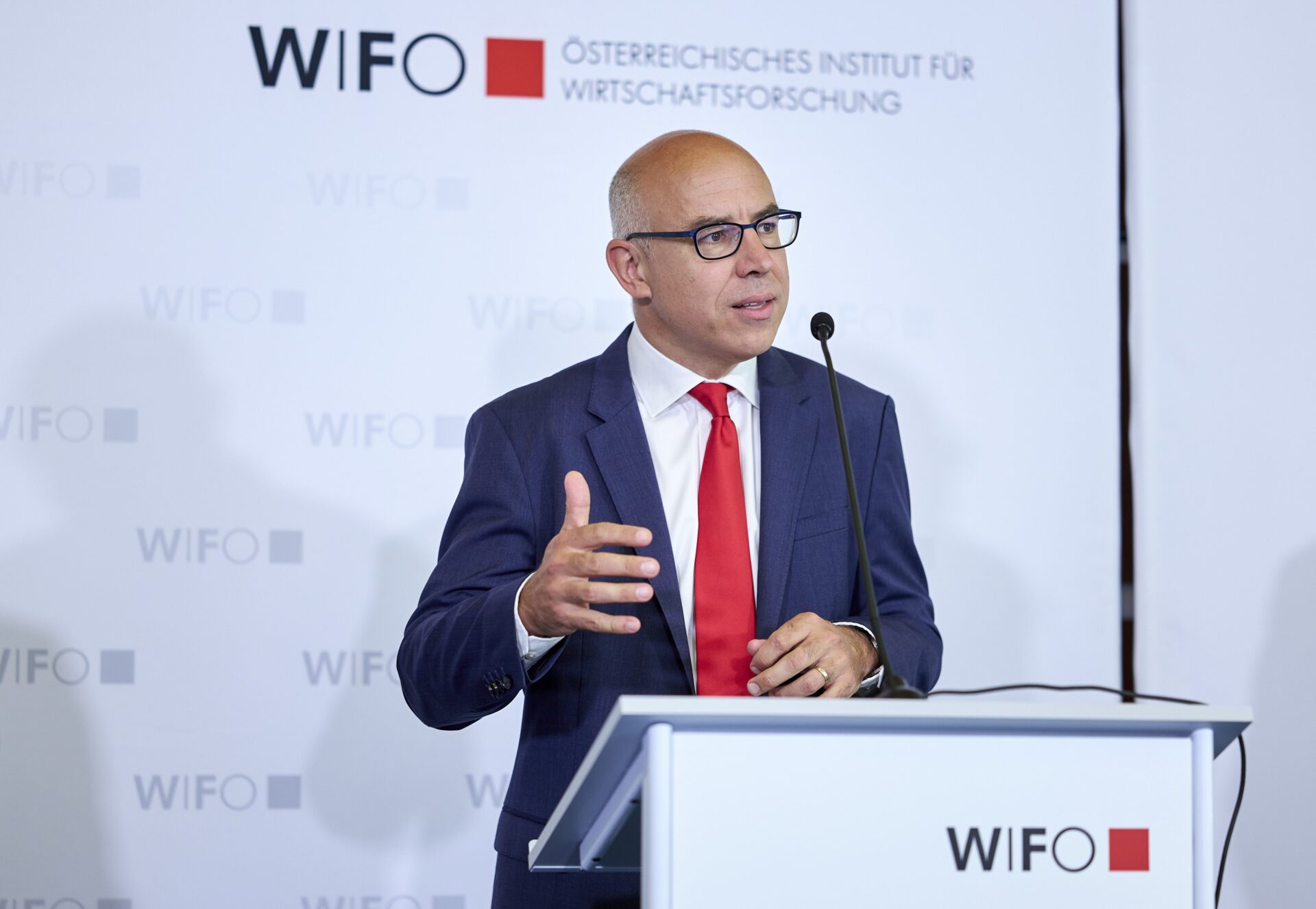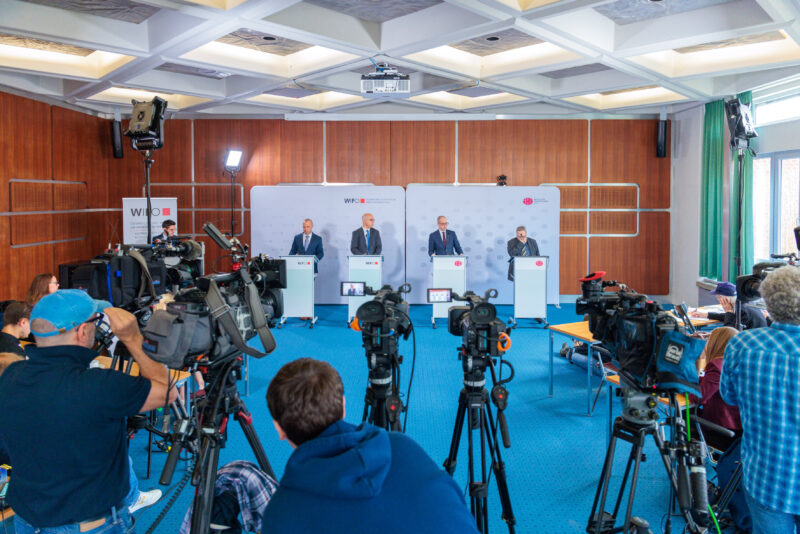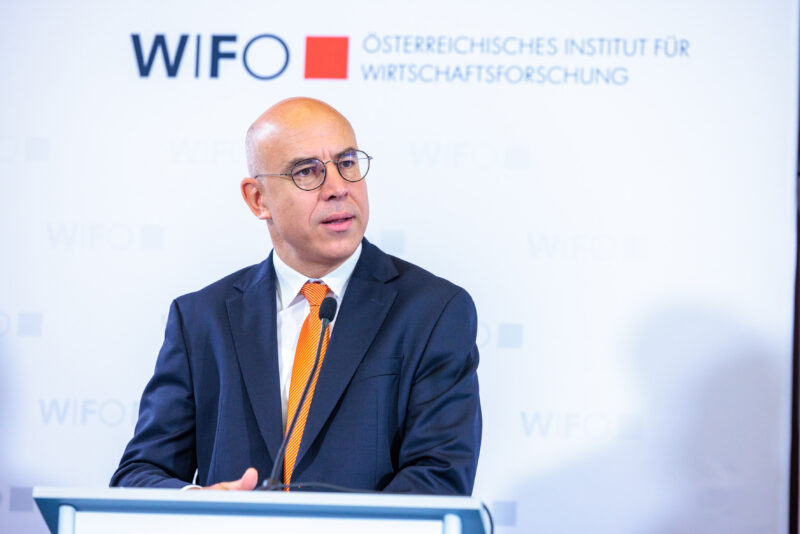
Purchasing Power Increases After Mild Recession
"Although the projected wage increases only compensate for inflation, the wage share is increasing as outflows to commodity-exporting countries dampened national income growth," says Stefan Schiman-Vukan, one of the authors of the current WIFO Economic Outlook.
Value added in Austria shrank in the summer half-year 2023. Industry is already in recession, but many service sectors have also lost significant momentum. In the construction industry, the strong key interest rate increases have accelerated the trend reversal in residential construction.
Except for the decline in job vacancies, the economic slowdown is hardly reflected in the labour market so far. Employment growth has only slowed in 2023, while unemployment is rising mainly due to higher labour supply. One reason for the robust labour market is the decline in per capita working hours since the COVID-19 pandemic. Furthermore, companies seem to be more likely to retain workers in the downturn to avoid costly recruitment in the upturn.
Like this so-called "labour hoarding", the downturn in industry is not only to be observed in Austria but worldwide, especially since the reduction of precautionary stocks is weighing on production and world trade. Now that inventories are being used up and energy prices have fallen, demand for new goods will rise again in the coming year. In the wake of the global economy, production in Austria will also recover. However, stronger impulses than from industry will come from private households in 2024, whose real incomes will increase strongly due to the delayed adjustment of wages and salaries, pensions and social benefits to inflation.
Austria's inflation differential with important trading partners will remain positive in 2024, but will narrow. Despite the worsened competitive price position, domestic exporters should gain market share in 2023, as they are less affected by the slump in demand for intermediate products and have maintained their competitiveness in special niches. However, due to the delayed decline in demand for capital goods, market share losses are likely in 2024.
All in all, the Austrian economy experiences a mild recession in 2023 due to various exogenous shocks: high price increases as a result of the pandemic, additional energy price shocks due to the Ukraine war and sharp increases in key interest rates. The weakness in economic activity is intended from a monetary policy perspective, as it helps to reduce price pressures. The lagged increase in real incomes will boost purchasing power and provide growth impulses in 2024.

















